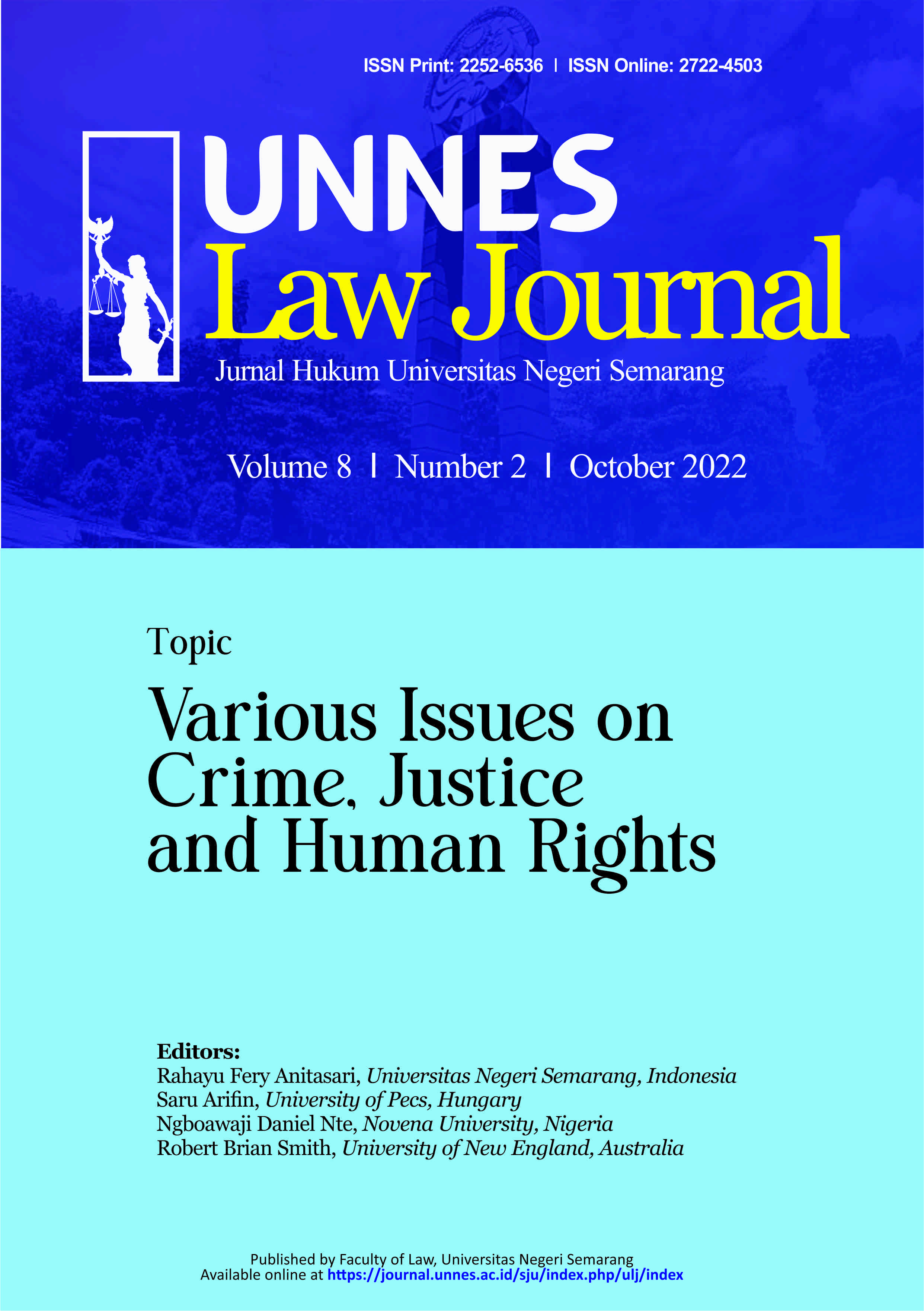llegal Financial Technology Loans Amid the Covid-19 Pandemic Problem Business Law, Law and Crime
Main Article Content
Abstract
This study aims to identify and analyze illegal online lending practices in the midst of the Covid-19 problems. The research method used in this research is normative juridical research, namely the method of doctrinal legal research by reviewing the applicable regulatory provisions as a basis for analyzing the problems that occur and providing a paradigm as an effort to mitigate those problems. This qualitative research uses a descriptive analysis from primary and secondary legal materials through the study of documents and related literature. Based on the results of the study, the pandemic situation has resulted in growing illegal online loan services. Many individuals and micro, small and medium enterprises UMKM) are entangled in lending and borrowing due to the capital needs as a result of the Emergency Public Activity Restrictions (PPKM) policy. Based on the findings, the authors suggested that the improvement of public literacy related to lending needs to be encouraged, including efforts to ratify the personal data protection law and the drafting of the Fintech
Article Details
References
Ani Eko Wahyuni, Raden, 2019, Illegal Financial Technology Practices in the Form of Online Loans Judging from Business Ethics, Faculty of Law, Diponegoro University, Indonesian Legal Development Journal, Vol 1, No 3.
Ani Eko Wahyuni, Raden, 2019, Illegal Technology Financial Practices in the Form of Online Loans in View from Business Ethics.
Dotthy Ellyany Sinaga, Hommy, 2019, Financial Technology: Online Loans, Yes Or No, Jurnal Tunas: Journal of Community Service, Vol 1 No 1.
E. Budiyanti, 2019, Efforts to Overcome Illegal Technology Financial Business, Brief Info Journal, Vol XI, No. 04/II/Puspit.
Fajria, 2019, Potential Synergy of Fintech with Islamic Banks in Improving Performance of Islamic Banking in Indonesia, Malia: Journal Of Islamic Banking And Finance, Vol. 3, No. 1.
Huang, 2018, Online P2P Lending and Regulatory Responses In China: Opportunities and Challenges. European Business Organization Law Review.
Juliasti, Sari, 2009, Smart to Get and Manage Business Capital, Jakarta, PT. Persero.
Laksana and Harja, 2020, Comparison of Financial Technology Regulations Regarding Customer Data Protection in Indonesia with Other Countries, Rechtidee, Vol. 15, No. 2.
Plt. Director of Information Application Control of the Ministry of Communication and Informatics, Teguh Arifyadi During a Webinar Combating Illegal Online Loans and Strengthening the Reputation of Fintech Lending, 2021.
Soetjipto, Noer, 2020, East Java MSME Resilience Through the COVID-19 Pandemic, Yogyakarta, K-media.
Sutra Disemadi, Hari and Regent, 2021, The Urgency of a Comprehensive Regulation on Online Loan-Based Fintech as an Effort for Consumer Protection in Indonesia, Journal of Legal Communication, Vol. 7, No. 2.
Tsuroyya, Dhiya and Muzayyanah, 2019, Analysis of Musyarakah Implementation in Sharia Financial Technology Peer to Peer Lending Services in Indonesia (Study of PT Syarfi Financial Technology), No.2.
Wahyuni, 2020, Strategy of Illegal Technology Financial Management In Form of Online Loans, Prasada Law Journal, Vol. 7, No. 1.
Online Sources
[…] https://bisnis.tempo.co, Illegal online loans are rampant during the pandemic.
[…] https://keuangan.kontan,co.id, as of June 2021, outstanding online loans reached Rp 23.38 trillion.
[…] https://www.bi.go.id/id/edukasi-konsumen protection/edukasi-konsumen protection/edukasi/produk dan-jasa-sp/fintech/Pages/default.aspx
Plt. Director of Information Application Control of the Ministry of Communication and Informatics, Teguh Arifyadi During a Webinar Combating Illegal Online Loans and Strengthening the Reputation of Fintech Lending, 2021.
